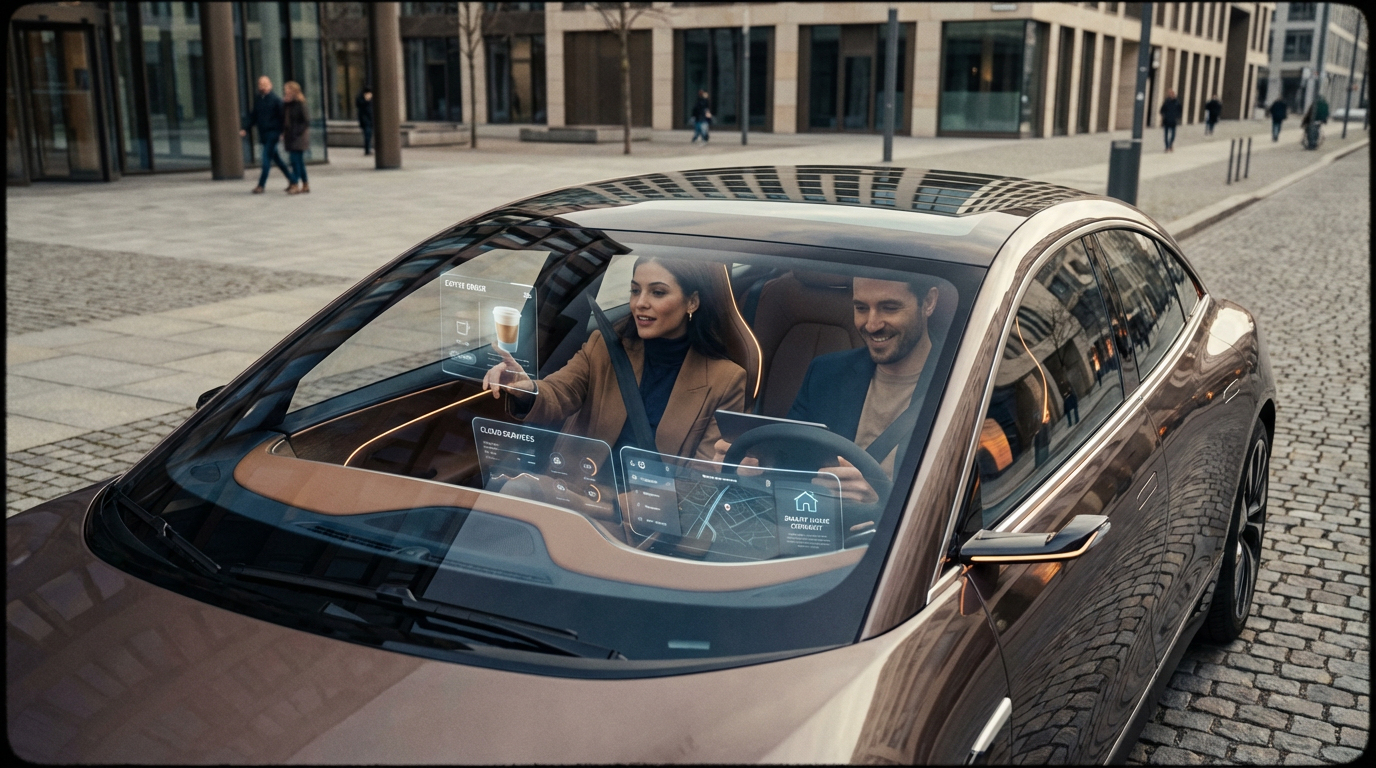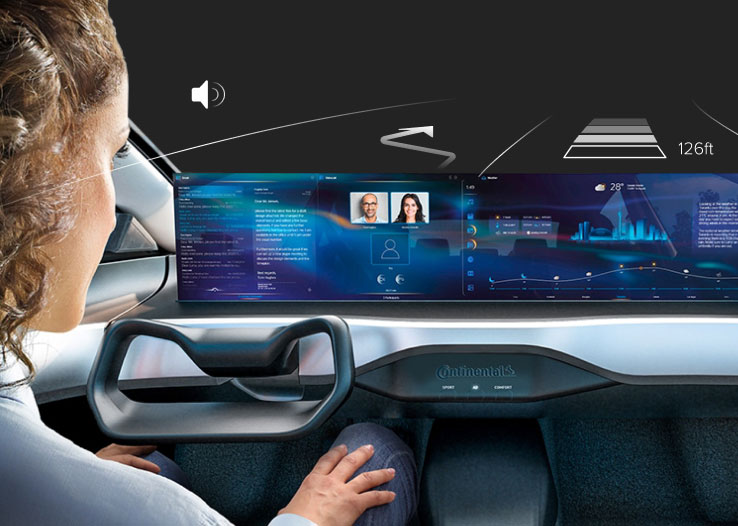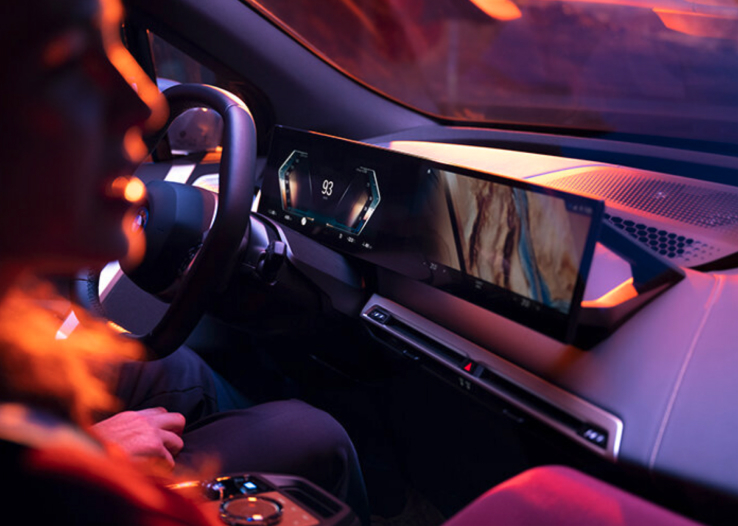When it comes to Gen Z cars, understanding their digital-native preferences is crucial. Gen Z, born between 1995 and 2012, is the first digital-native generation, with their values, behaviors and even identity shaped by the digital age. To us millennials, they’re the generation that complains about slow internet speeds, cannot fathom using a landline and spends hours on TikTok. But Gen Z is also the largest generation and is on track to become the most powerful consumer force, with spending power projected to surpass Boomers by 2029, positioning them as the wealthiest generation ever, according to NielsenIQ. This consumer savvy extends to their approach to major purchases, with 76% of Gen Z purchasing their first vehicle before turning 21, significantly outpacing Millennials at 56%.
Connectivity and safety driving Gen Z car preferences
From our research and experience engaging with Gen Z, one constant across most of their ‘big’ purchases, including cars, is connectivity. Whether they’re buying a fridge or a vehicle, they expect seamless technology integration into every aspect of life. Features like Apple CarPlay, in-car payment systems and advanced driver-assistance systems (ADAS) are deal-breakers, not just nice-to-haves. For Gen Z, convenience and connectivity are essential for keeping up with their fast-paced, always-online lifestyle.
This expectation for connectivity extends to the pre-purchase research phase. Gen Z expects the same seamless experience when researching a brand as they do when they’re actually inside a car. Unlike older generations who prefer visiting dealerships, Gen Z is comfortable completing most of the buying process online, relying heavily on digital touchpoints over human interactions.
While Gen Z is price sensitive, what they value is more complex. Safety is a top priority, even more so than it is for Boomers and Millennials. Practicality is also highly valued. They’re less interested in using cars as status symbols, as previous generations did. Instead, they choose cars based on how well they fit into their daily routines and digital lives, and overall income. Fuel efficiency (for both electric and gas cars), a balance between cost and in-car features, flexible financing options and maintenance costs are key factors in their decision-making process when it comes to cost.
Gen Z and customization: cars as an extension of identity
One of the biggest differences between Gen Z and previous generations is their use of social media as a primary source of shopping inspiration – their purchase journey often starts online. Nearly two-thirds of American Gen Zers consider self-expression essential when choosing a car. For them, self-expression goes beyond aesthetics; they seek customizable, connected in-car features that allow personalization, making their car an extension of themselves and their digital lives. While social signaling and brand differentiation remain core marketing strategies for OEMs, Gen Z is notably less brand-centric. Instead, they look for transparent information on vehicle features and innovations and value genuine engagement on social media.
Debunking myths about Gen Z car preferences
One common myth about Gen Z is that they prioritize sustainability over utility. From our research and experience with this cohort in North America, that’s not entirely true. While Gen Z cares about social impact, it’s not the main driver in their decision-making process when it comes to buying a car. In fact, two-thirds of Gen Z in the US prefer hybrid options. They want eco-friendly options, but practicality still takes precedence.
Another misconception is that Gen Z is loyal to local automotive brands. In reality, brands like Honda, Toyota and Hyundai are among the most popular with this generation in the US. As mentioned earlier, they are less brand-centric and don’t have a particular preference for national brands; instead, they value reliability, affordability and in-car features that fit their needs.
It’s also worth noting that while Gen Z loves the outdoors, which is a great marketing angle for automotive brands, they still value owning a car. Another myth is that they prefer ride-sharing over car ownership. This really depends on location. For Gen Z living in suburban or rural areas, owning a car remains crucial – especially for those who are starting families.
In urban areas, however, things are a bit different. Gen Zers in cities are more open to ridesharing and emerging autonomous vehicles, like Waymo. But even here, ownership isn't completely off the table – it's all about flexibility and options.
Prioritizing what matters most in Gen Z cars
When it comes to engaging Gen Z and building brand loyalty, personalization is essential. And it’s not just about allowing the in-car OS to adjust the seat or mirror angles. It’s about offering the right options that match their life stage. As Gen Z moves through different phases – whether they’re entering the workforce, starting a family, or making long-term commitments – their needs evolve.
Context matters most. For example, a young Gen Z fresh out of college might prioritize connectivity and affordability, while a new parent will look for safety features and space for their growing family. OEMs that understand and respond to these nuances, focusing on what Gen Z values not just today but as they progress through life, will build lasting relationships and gain a competitive edge.
Helping OEMs define context and drive Gen Z engagement
At Star, we help ambitious automotive OEMs and mobility brands stay competitive by decoding global consumer preferences and emerging trends. Learn how to get ahead in all-important regions like China, Germany and USA in our new think piece: Global automotive industry outlook 2026: Insights and trends.







